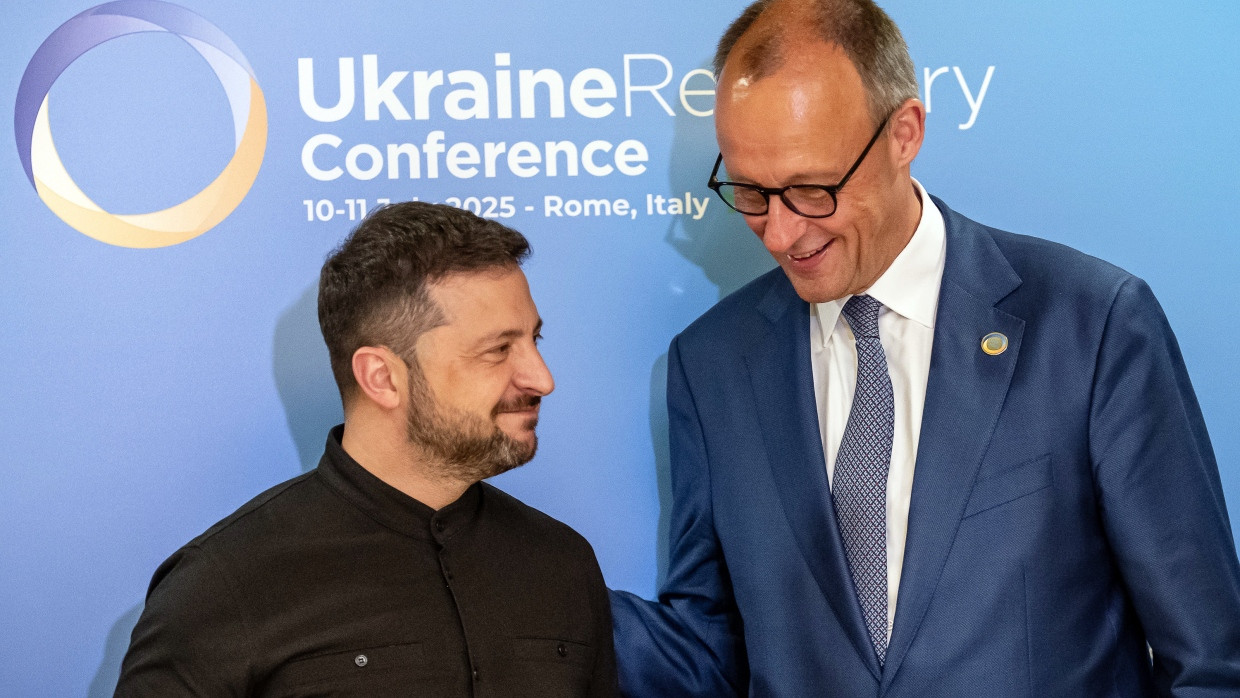Reconstruction: Why it is now worth investing in Ukraine


Despite the war, Ukraine is demonstrating tremendous resilience. This applies to both its people and its economy. German companies can help, explains a top GIZ manager.
Ukraine may be at war, but trade and production continue – and the German economy also benefits from this: In 2024, the trade volume between Germany and Ukraine reached around 11.6 billion euros – an increase of more than 18 percent compared to the previous year.
Particularly noteworthy: German companies exported goods worth €8.5 billion, while imports from Ukraine reached a new all-time high of €3.5 billion. These figures demonstrate that, despite the war, Ukraine remains economically resilient and attractive to German and European companies. But it is also a fact: Ukraine needs investment and strong economic partners to rebuild the country. This creates jobs for local people and prospects for Ukrainian refugees to return. It also offers German and European companies a potential sales market.
War and reconstruction at the same time may seem contradictory at first glance. Nevertheless, now is a good time to establish contacts with potential business partners and customers and to invest. In addition, Ukraine is a candidate for EU membership. This status ensures that the government in Kyiv is implementing reforms to create a more favorable business environment and attractive conditions for German companies and their innovations. The country is reducing bureaucracy and facilitating investment.
The German Society for International Cooperation (GIZ) supports the Ukrainian economy on behalf of the German Federal Government and promotes cooperation between European and Ukrainian companies. It focuses on four areas: sustainable reconstruction of the energy supply, support for the population, good governance, and, specifically, sustainable economic development.
In concrete terms, this means that the German Federal Government, the European Union, and other donors are making it easier for German and European companies to enter the Ukrainian market. For example, they are hedging the risk of investments through federal guarantees or providing export credit guarantees to protect exporters from payment defaults. Ukraine presents particular political and economic risks. In addition, constant Russian attacks pose an extraordinary security risk. This requires customized security concepts for companies.
Despite the war, the Ministry of Economic Affairs has kept the federal guarantees for business with and in Ukraine open for German companies. In 2024, the federal government guaranteed deliveries and services in Ukraine worth more than €400 million. Numerous programs and platforms exist that facilitate business development, connect partners, and provide financial support.

But how exactly do German and European companies find their way into Ukraine? One way to do this is through the "InfoDesk Ukraine" of the State Agency for Business and Development (AWE). Interested parties can learn about current calls for tenders for reconstruction projects and receive advice on tenders, programs, and funding opportunities offered by the German government.
The Ukraine website of the foreign trade agency "Germany Trade & Invest" (GTAI) also offers an overview of funding instruments, market data, and contact persons. Among other things, you'll find practical insights into economic structures, clusters, industrial parks, and skilled workers. Other contact points include the National Platform for Reconstruction of Ukraine, the Ukrainian Chamber of Commerce and Industry, the German Chamber of Industry and Commerce, and the Committee on Eastern European Economic Relations of the German Economy.
Ukraine offers great potential: It is a strategically important location in Eastern Europe and offers the opportunity to train highly skilled workers. Since 2022, GIZ has provided initial and further training to 64,000 people in occupations relevant to reconstruction, including in the construction, energy, and healthcare sectors.
For example, in July 2025, Siemens Healthineers, together with GIZ, began training medical technology specialists for radiology in Ukraine, who are urgently needed in the healthcare sector. In addition, local trainers are also being trained, who can then train further specialists. The Siemens Healthineers initiative is supported by the "DeveloPPP" program of the German Federal Ministry for Economic Cooperation and Development (BMZ). The program promotes projects with companies that want to invest sustainably in a developing or emerging country. The initiative is financed half by the company and half through DeveloPPP.
In the construction sector, examples include the Swabian company IBS. It has developed a building material for better and more sustainable road repairs. The company is now using this technology in the city of Lviv to rehabilitate the war-damaged road network. IBS has also applied for "DeveloPPP" and is receiving support.
In addition to traditional industries, Ukraine's digital economy is increasingly attracting the attention of international investors. In 2023, the IT sector contributed five percent to gross domestic product, making it one of the mainstays of the economy. With a large number of skilled workers, the country has established itself as one of Europe's leading IT outsourcing locations. German companies are also banking on this. For example, the Ministry of Economic Affairs has specifically promoted the networking of Ukrainian IT companies with the German market.
GIZ also supports local businesses in Ukraine. It advises them on alternative supply chains and locations, as well as on innovation processes, connects them with potential customers, and provides financing. Since the beginning of the war, GIZ has supported around 16,000 companies and facilitated 530 partnerships between Ukrainian and EU companies.
Frankfurter Allgemeine Zeitung




